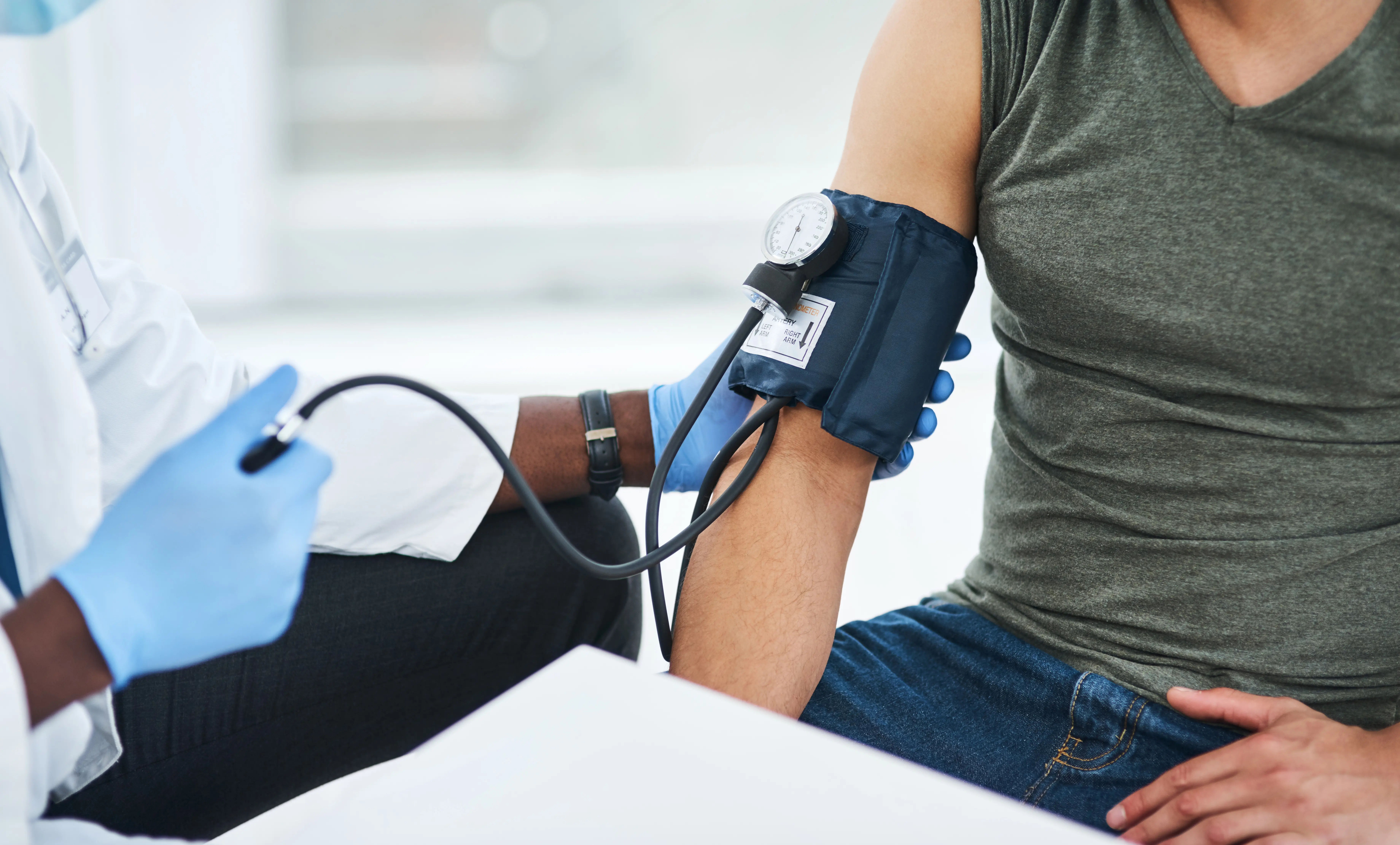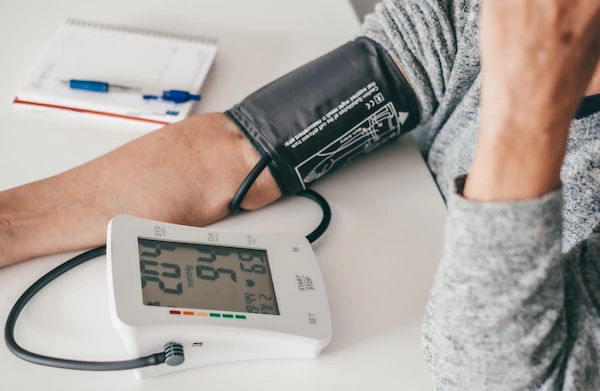Winter Hypertension: Your Essential Guide to Managing High Blood Pressure
Learn how to manage hypertension during the winter months. Discover the link between cold weather and high blood pressure, and get expert tips on diet, lifestyle, and medication to stay healthy all season long.

Written by Dr. J T Hema Pratima
Reviewed by Dr. Shaik Abdul Kalam MD (Physician)
Last updated on 13th Jan, 2026

As the temperature drops and we cozy up indoors, a hidden health risk often begins to climb: our blood pressure. For the millions living with hypertension, winter presents a unique set of challenges that can make managing this condition more difficult. The cold weather doesn't just mean pulling out warmer clothes; it triggers physiological responses that can significantly impact your cardiovascular health. This comprehensive guide will explore the science behind hypertension in winters, identify who is most at risk, and provide you with a practical, actionable plan to keep your blood pressure in check throughout the colder months. Understanding these seasonal dynamics is your first step toward staying safe and healthy all winter long.
Why Does Blood Pressure Spike in the Cold?
The link between cold weather and rising blood pressure isn't just an old wives' tale; it's a well-documented physiological phenomenon. Your body's primary goal in the cold is to preserve core heat and protect vital organs. This mission leads to several automatic responses that directly affect your blood pressure.
Consult a General Physician for the best advice
The Science of Vasoconstriction
When you step out into the cold, your body's first reaction is to constrict the peripheral blood vessels—those found in your skin and extremities. This process, called vasoconstriction, reduces blood flow to the surface of your body, minimizing heat loss. However, with the same volume of blood now flowing through a narrower space, the pressure within your circulatory system increases. Think of it like pinching a garden hose; the pressure inside the hose builds up. A study published in the Journal of Hypertension found that systolic blood pressure (the top number) can be significantly higher in winter than in summer, with an average increase of 510 mmHg, enough to push someone from prehypertension into a hypertensive range.
Reduced Physical Activity and Weight Gain
Winter often leads to a more sedentary lifestyle. Icy paths, shorter days, and the general desire to stay indoors mean we often skip our regular walks or gym sessions. This reduction in physical activity is a major contributor to weight gain and worsened blood pressure control. Exercise is a powerful tool for managing hypertension as it helps keep blood vessels flexible and promotes a healthy weight. The lack of it can quickly reverse these benefits.
Dietary Changes: The Hidden Sodium Trap
Our diets also tend to shift in winter. We crave hearty, comforting meals like soups, stews, and processed foods, which are often loaded with sodium—a known enemy of blood pressure. A single can of soup can contain over 1,000 mg of sodium, nearly hitting half the recommended daily limit for many hypertensives. This increased sodium intake, combined with less water consumption (as we often don't feel as thirsty in the cold), can lead to fluid retention and a further spike in blood pressure.
Are You at Higher Risk? Identifying Vulnerable Groups
While cold weather can affect anyone's blood pressure, certain groups need to be especially vigilant. Understanding your risk level can help you take more proactive and stringent precautions.
Older Adults and AgeRelated Vascular Stiffness
Older adults are particularly susceptible to winter hypertension. As we age, our blood vessels naturally lose some of their elasticity, making them less able to expand and contract efficiently. This agerelated vascular stiffness, combined with the coldinduced vasoconstriction, creates a perfect storm for a significant blood pressure surge. For seniors, this elevated pressure dramatically increases the risk of catastrophic cardiovascular events.
Individuals with PreExisting Heart Conditions
If you have a history of heart disease, heart failure, or have had a stroke, your cardiovascular system is already under strain. The added pressure from cold weather forces your heart to work much harder to pump blood through constricted vessels. This extra workload can precipitate angina (chest pain), arrhythmias (irregular heartbeats), or even a heart attack. Recognizing that winter is a high risk season is crucial for this group.
Your Winter Action Plan: 8 Strategies to Control Hypertension
Knowledge is power, but action is key. Here is your practical guide to combating winter blood pressure spikes and maintaining optimal cardiovascular health.
Dress Like an Onion: The Power of Layering
The simplest and most effective defense is to stay warm. Dress in layers when going outside, paying special attention to covering your head, hands, and feet, as significant heat is lost from these areas. A warm hat and gloves are nonnegotiable. This helps your body maintain its core temperature without having to resort to extreme vasoconstriction.
Keep Moving: Indoor Exercise Ideas
Don't let the cold derail your fitness routine. Safe exercises for hypertension in winter can be done indoors. Consider home workout videos, yoga, using a stationary bike or treadmill, or even walking laps inside a shopping mall. The goal is to get at least 30 minutes of moderate activity most days of the week to keep your blood vessels healthy and manage weight.
Monitor Your Blood Pressure at Home
If you have hypertension, monitoring your blood pressure at home is vital year-round, but especially in winter. Track your readings consistently at the same time each day and keep a log. This data will help you and your doctor understand how the season affects you and whether any adjustments to your medication or lifestyle are needed.
Be Mindful of Your Diet and Alcohol Intake
Combat winter's dietary changes by being extra vigilant. Read nutrition labels to avoid high-sodium processed foods. Prepare homemade soups using low sodium broth and fresh vegetables. Also, be cautious with alcohol, which can cause vasodilation (widening of blood vessels) followed by a rebound effect, and is also high in empty calories.
Stay Hydrated with Warm Fluids
We often forget to drink water in winter. Dehydration can thicken blood and increase pressure. Aim for 8 glasses of fluids a day. Herbal teas, warm water with lemon, and low sodium broths are excellent warm options that also help you feel cozy.
Manage Stress and Prioritize Sleep
The winter holidays can be stressful, and stress is a major BP driver. Practice relaxation techniques like deep breathing, meditation, or listening to calming music. Furthermore, prioritize getting 78 hours of quality sleep per night, as poor sleep can negatively impact blood pressure regulation.
Warning Signs: When to Seek Immediate Medical Help
It's crucial to recognize when high blood pressure becomes a medical emergency. If you experience any of the following symptoms, seek immediate medical attention:
Severe headache
Chest pain or discomfort (angina)
Shortness of breath
Vision changes
Nausea or vomiting
Severe anxiety
Confusion or difficulty speaking
If you experience these warning signs, do not wait. Consult a doctor immediately. For urgent advice, you can connect with a specialist online via Apollo24|7 for a quick consultation.
Quick Takeaways: Winter Hypertension Cheat Sheet
Cold causes vasoconstriction, tightening blood vessels and raising BP.
Older adults and those with heart conditions are at highest risk.
Layer up! Keep your head, hands, and feet warm when outdoors.
Maintain indoor exercise to avoid becoming sedentary.
Monitor your BP at home regularly and keep a log.
Watch your diet for hidden sodium in comfort foods and soups.
Stay hydrated with warm fluids like herbal tea and broth.
Conclusion
Managing hypertension in winters requires a conscious and proactive approach. By understanding the science behind the seasonal spike—primarily vasoconstriction and lifestyle changes—you can take empowered steps to counteract it. From bundling up and finding creative ways to stay active indoors to being meticulous about your diet and home monitoring, you have a powerful toolkit at your disposal. Remember, consistency is key. By integrating these strategies into your daily routine, you can navigate the winter months safely, keeping your blood pressure under control and your heart healthy. If your readings remain consistently high despite these efforts, it’s essential to consult a doctor online with Apollo24|7 to discuss potential adjustments to your management plan.
Consult a General Physician for the best advice
Consult a General Physician for the best advice

Dr. Rajib Ghose
General Physician/ Internal Medicine Specialist
25 Years • MBBS
East Midnapore
VIVEKANANDA SEBA SADAN, East Midnapore

Dr. Pinaki Mukhopadhyay
General Physician/ Internal Medicine Specialist
33 Years • MBBS
Kolkata
MCR SUPER SPECIALITY POLY CLINIC & PATHOLOGY, Kolkata
(25+ Patients)

Dr. Shiv Krishna Mitra
General Physician/ Internal Medicine Specialist
15 Years • MBBS GEN. MED. PGDRM, MCH
Kolkata
Samaritan Clinic, Kolkata

Dr. Utsa Basu
Diabetologist
14 Years • MBBS , MD
Barasat
Diab-Eat-Ease, Barasat
(75+ Patients)

Dr. Tanzeem Shajahan
General Physician/ Internal Medicine Specialist
7 Years • MBBS, MD (General Medicine)
Bengaluru
Medwin multispeciality clinic, Bengaluru
More articles from High Blood Pressure
Frequently Asked Questions
1. Does everyone's blood pressure go up in the winter?
While not everyone will have a clinically significant increase, most people experience a slight rise in blood pressure during colder months due to natural physiological responses. The effect is most pronounced in older individuals and those with existing hypertension.
2. What is a dangerous blood pressure reading in winter?
Any reading that is consistently at or above 180/120 mmHg is considered a hypertensive crisis and requires immediate medical attention. However, any reading above your normal baseline that is accompanied by symptoms like headache or chest pain should be evaluated by a doctor promptly.
3. I take medication for hypertension. Do I need a higher dose in winter?
This is a decision that must be made by your doctor. If your home monitoring logs show a consistent seasonal pattern of elevated readings, your doctor on Apollo24|7 might consider adjusting your medication dosage during the winter months. Never adjust your medication on your own.
4. Are saunas or hot baths safe if I have high blood pressure?
While warming up is good, extreme heat can cause a sudden drop in blood pressure as vessels dilate, leading to dizziness and a risk of fainting. If you use a sauna or hot tub, limit your time to 1015 minutes, ensure it's not too hot, and get up slowly afterwards. Always consult your doctor first.
5. How can I get my vitamin D in winter without going out in the cold?
Vitamin D deficiency is common in winter and may be linked to blood pressure issues. While safe sun exposure is best, you can talk to your doctor about vitamin D supplements or include dietary sources like fatty fish, fortified milk, and eggs in your diet. Apollo24|7 offers a convenient home collection for tests like vitamin D to check your levels easily.’




